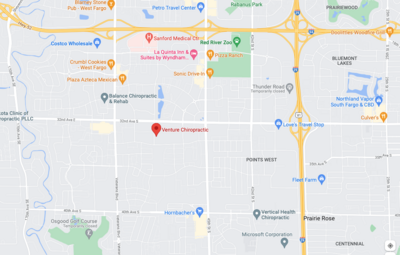
How many parents have been asked while holding their newborn, are they sleeping through the night yet? I have been on the hunt for the “magic sleeping” button for the past 6 years. There are glimpses of greatness and then we slip into a sleep regression, snag a cold, or a bad dream wakes them from their slumber. Sleep as new parents is like pulling all-nighters in college over and over again, expect without the partying and the option to sleep through the day. Sleep can be this elusive thing that parents can spend endless hours and sleepless nights trying to figure out. It is important to understand that each family dynamic, child, and situation can vastly differ. How we choose to parent our children, strategies we do to help them find more restful sleep, and the place children sleep is a family decision. The decision of the family doesn’t affect anyone else. In this first series we are going to cover sleep for parents. We will be focusing on parents first and cover sleep for the newborns, infants and children in a later blog.
Newborns don’t know that people sleep at night. In the early weeks and months of a baby’s life, parents may find it challenging to get enough sleep. Once the euphoria of birth, labor, and meeting your newborn fades, the days and nights start to bleed together, and we enter “mombie” stage. All things pass and a new stage with its own challenges will emerge. In a survey for 500 UK parents and 500 US parents revealed that 68% of surveyed people were getting 7+ hours of sleep prior to having a baby. Afterwards, only 10% of parents were getting that amount of sleep. WOW! According to a study by Stanford Children’s health most babies don’t begin sleeping for 6-8 hours until at least 3 months of age. It is also normal for them to be much older before they reach this consistent sleep pattern.
Adults need about 7-8 hours of sleep a night to feel rested, although this can also vary from 5-10 hours depending on the person. Signs you may need more sleep:
- Feeling irritable, depressed, anxious
- Cannot concentrate
- Falling asleep unintentionally during the day
- Difficulty waking up in the morning
- Weight gain
- Junk food cravings and increased caffeine use
- Increased headaches
- Dark circles, redness, puffy eyes
- Increased illness. Lack of sleep depresses the immune system.
Sleeping is good for everyone’s physical, emotional, and mental health.
How to sleep better and feel more rested
Before & During Bed
- Establish a regular routine. Go to bed when you are tired, instead of grabbing a tablet, or turning on the TV to stay awake a little longer.
- Listen to guided meditation, read a book, or practice deep breathing. Check out our YouTube Video on Core Breathing. You can start working on regaining control of your breath early on after birth. Breathing will be the foundation of all exercises and movements, as you move through the postpartum period.
- Avoid coffee, soda, chocolate, and caffeinated teas before bed.
- Avoid the use of screens for at least 30 minutes before bed. This interferes with our body’s sleep patterns and creates disturbed sleep.
- If you cannot quiet your mind, try writing your thoughts, concerns, or questions in a journal. It can also be a good time to write in a gratitude journal.
During the Day
In the first few weeks of having a newborn, try to sleep when they sleep and take little naps throughout the day. It is better to close your eyes for 5-20 minutes instead of taking an hour long nap. You will wake up feeling more tired if you nap too long. Fill your day with physical activity that is appropriate for the stage you are in during postpartum period. Healthy food choices can also aid in better sleep. Good protein sources and hardy a breakfast of eggs, oatmeal, or yogurt can help get your day started on the right foot. Avoid starting your day with sugary breakfast foods.
Adapt routines, establish your roles as parents and expectations
If it is possible share baby care with a partner, family member or friend. This may be harder for moms who are breastfeeding but taking shifts for night-time duties can make a real difference. If you are unable to take turns, then short naps during the day are important. Use your energy for things that are important to you like playing with your children or visiting with family/friends and leave the vacuuming for later.
Break chores into small steps and focus on one thing at a time. It can make tasks seem more manageable and help you to avoid feeling overwhelmed and exhausted. One of the best gifts for a new parent is help with chores, meals, and emotional support. If you are looking for gifts to give parents with children, instead of clothes or toys, offer your help and support.
Lower your expectations. Sometimes our expectations of what we should do or how we think we should parent are unrealistic. It is okay for kids to be bored and for you to pick up a fast meal if you need a break. We may have expectations that we can play with the kids, wash the dishes, prepare three homemade meals, help with schoolwork, finish the laundry and go to the gym, but even writing that list makes me feel exhausted. When we put too much on our plate we often don’t even know where to begin and end up getting nothing accomplished.
There may be times when you can accomplish everything on your list, but then there will be days when you get little done. Be gentle on yourself when you are feeling low energy and cannot get everything done. Please know that you are not alone. Each family experiences their own challenges with raising their children even though they may appear they got it all together.
If physical body pains are keeping you awake, we can help ease your pain at Venture Chiropractic. A combination of adjustments and exercises may be provided. Often new parents need some nutritional support and in some cases blood work may be ordered to help identify issues that may be underlying. I am passionate about the postpartum period and making sure parents have support and know what resources are available to them. If you or you know of a loved one that may need help don’t hesitate to reach out to us!
- Melanie Dockter DC, CACCP




